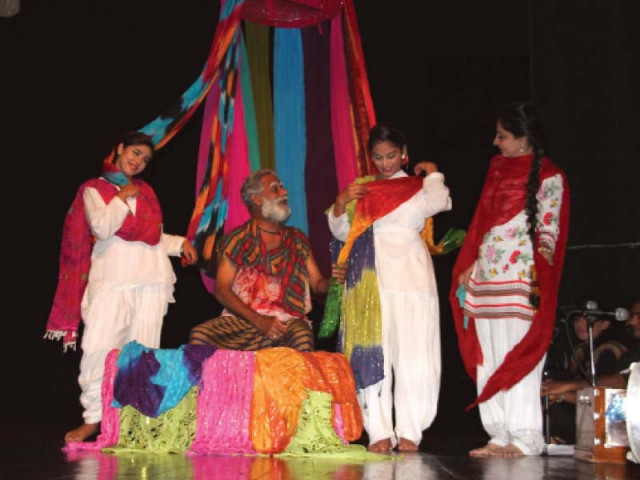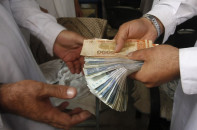Partition sufferings: Stage play showcases trauma, resilience of human spirit
Pakistan, India together have to make our dreams come true, says Kishwar Naheed

The stage play “Dreams which refuse to die” inspired by some true stories of the generation dislocated and tormented by the devastating events during the partition. PHOTO: EXPRESS
And it all began with uncertainty, anxiety, fear and suspicion at the grassroots, and generations were separated, dislocated and tormented.
The people who chose to stay and the people who chose to migrate, both could not get over the pain. Despite all these tormenting episodes, the separated people of that generation see the two nations as one.
The stage play “Dreams which refuse to die” inspired by some true stories of the generation displaced and tormented by the devastating events during the partition was presented at the Pakistan National Council of Arts (PNCA) Islamabad on Saturday and Sunday.
It is a story of shattered dreams and traumatic nightmares but also of the resilience of the human spirit.
The play was a tribute to the people, who during the partition, went through abduction, mass migration, and bloodshed but stayed resilient and bounced back from setbacks.

“People were forced to leave on both sides and are still facing the consequences,” said writer Shahid Nadeem before the play commenced.
The theatre performance showcases the eternal agony of Anhi Mai and Ustad Rangu and several others who are living in despair and helplessness.
Mai, who is blind and now lives in Amritsar, is determined to visit her village in Pakistan regardless of the closure of the border and the visa issue.
On the other side, Rangu, the dyer of Rang Mahal in Lahore, who refused to leave Lahore during the partition, now wants to attend his granddaughter’s wedding in Amritsar.
Though he cannot travel to India but there is no restriction on his dreams of reuniting with his family.
They are the stories of the people on both sides, who have unbreakable cultural, historical and emotional bonds, and are determined to overcome the hurdles created by vested interests of both the governments.
In the angst of bloodshed and large scale rapes and murders, the wails and screams still echo Mai’s ears which take her back to the time of partition leaving her village with nothing but with the mist of blood and shredded clothes of abducted women.
She could not withstand the wretched scene of her village, so she lost her sight but somewhere between blind eyes and inflicting pain, she can still see the traumatic miseries in her nightmares.
But her bruised dreams are not broken yet.
She is resilient and hopeful to return to Pakistan one day to meet her beloved friend Zuliekha. The play beautifully describes how the separated people see the two nations as one.
The borders can distance people but cannot distance the love, the people on both sides hold for each other.
The separated ones are willing to jeopardise their life in desperation to jump the fences to meet the love, they are deprived of.
Renowned poet Kishwar Naheed in her remarks said, “this play brought back the nostalgic nightmares of my childhood, which witnessed the ghastly bloodshed and this violence has not ended yet. Both the nations seek peace and want to embrace each other like we would be on the occasions of Eid and Holi.”
“Our dreams are never lies, we together have to make our dreams come true,” she added.
Published in The Express Tribune, August 29th, 2016.



















COMMENTS
Comments are moderated and generally will be posted if they are on-topic and not abusive.
For more information, please see our Comments FAQ